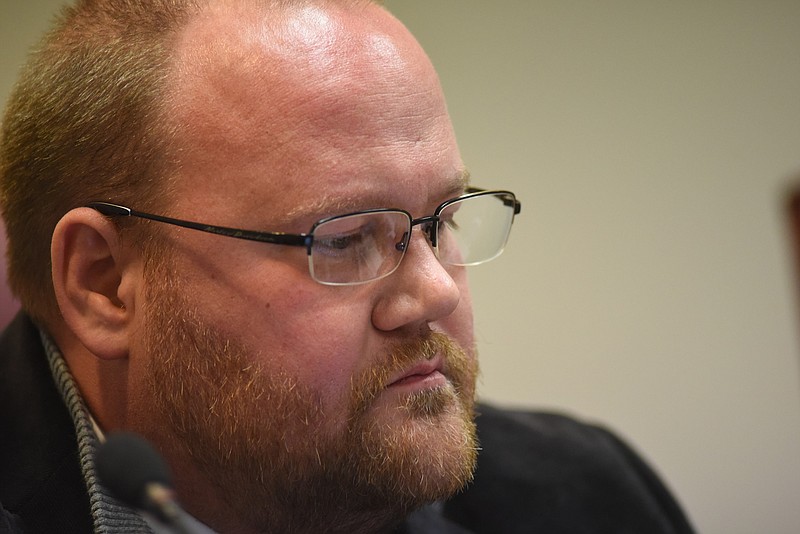NASHVILLE - A revolt that began in Bradley County against stripping long-held priorities from Tennessee's education funding formula flamed statewide Sunday.
At the Tennessee School Boards Association 2015 leadership conference, delegates voted almost unanimously for a resolution urging the state to fund all recommendations made in years past by the BEP Review Committee.
The committee, whose job is to make recommendations on school funding, astonished the education community in its annual report issued Nov. 1. The report dropped eight years of previous recommendations and the specific dollar amounts to implement them.
Those included priorities such as reducing class sizes in middle and high school, boosting education support services such as nurses, counselors and technology coordinators, and boosting money for classroom supplies and materials.
Those same needs and services were cited when school boards in Hamilton County and six nearby counties filed suit in March, claiming the state isn't putting enough money into education for schools to meet mandated responsibilities. Shelby County also filed a separate suit.
Dr. Jonathan Welch, a Hamilton County school board member, has questioned whether the omissions were related to the lawsuit.
So do many other school boards in Tennessee, said Chris Turner, chairman of the Bradley County Board of Education.
Last week the Bradley board, also part of the suit, passed a resolution denouncing the exclusion of the recommendations and calling on the TSBA to adopt its own resolution "calling upon State officials to fund the true cost of educating Tennessee students, specifically to include the cost components recognized and recommended by the BEP Review Committee in past years."
That's what happened Sunday night, when 217 of the 219 delegates voted for the resolution seeking full funding of past priorities.
"The funding formula accurately reflects what school systems across the state actually do," Turner said by telephone. "We think those things are necessary; that's why we do them now.
"We think it's very important to ask the committee what new data, what new information would have guided them," to drop those recommendations, he said.
"The data doesn't suggest it or support it, what we do in schools doesn't suggest it or support it. This is such a huge shift in direction from what that group has done in the past. There must have been an outside influence, and I believe the school boards of the state of Tennessee deserve an answer."
Gov. Bill Haslam said last week he doubts the omissions had anything to do with the lawsuit, and said he wasn't involved in the BEP committee's report.
"No, of course that's the state board making that call, that's not us," the Republican told reporters. "But having said that, my sense is there's no connection at all. There's no connection to the lawsuit."
Dr. Sara Heyburn, executive director of the Tennessee Board of Education whose staff runs the BEP Review Committee, also told the Times Free Press last week the committee's move had nothing to do with the lawsuits.
"The BEP report reflects the BEP Review Committee's 2015 priorities as well as a collective, ongoing commitment to Tennessee's teachers and students," Heyburn said via email.
She noted that the report and recommendations were adopted with no dissenting votes at public meetings, and said there was a "concerted effort to make the 2015 documents more succinct and focused for the state's policy makers."
But two committee members have told the Times Free Press that move was never discussed during this year's abbreviated meetings and they were unaware it had happened. Four meeting attendees say the same thing.
State Finance Commissioner Larry Martin, a member of the BEP Review Committee, said last week he sent a surrogate to this year's meeting.
"I know of no agenda there [BEP Review Committee] to eliminate anything necessarily," Martin said. "My understanding all along had been that the process was working as has been normal, as has been the practice in the past."
Martin also said priorities have to bow to the state's ability to pay for them. An example is teacher health insurance.
For years, the state paid its share of insurance for only 10 months of the year, with local taxpayers paying the entire cost for two months.
This year, after Hamilton and the other counties sued, the state added an 11th month at a cost of $30 million.
"That's a fairly expensive proposition," Martin said. "So I think we're moving in the right direction on that point, which seems to me to be consistent with what the review committee had been interested in."
Haslam also injected $100 million in new funding to boost teacher pay, part of his goal to make Tennessee teachers' salaries the fastest improving in the nation.
Haslam has said education funding is a priority but he has to work it into a $30 billion-plus budget with other increasing demands in areas including TennCare, the state's version of Medicaid.
In this year's scaled-down recommendations, the BEP Review Committee called for adding the 12th month of insurance, for Haslam moving along his goal of increasing teacher pay and providing $10 million in new technology funding for schools.
Contact Andy Sher at asher@timesfreepress.com, 615-255-0550 or follow on twitter at AndySher1.
